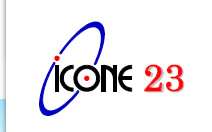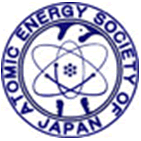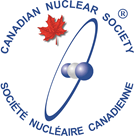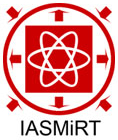

| Date | Time | Content | Place |
|---|---|---|---|
| May 17th, Sunday |
10:00am - 5:00pm | CFD Seminar | Room 201, 2F |
| Workshop 1: Thermal-Hydraulic Methods, Experimentation and Benchmarking | Room 302, 3F | ||
| Workshop 8: Nuclear Codes & Standards | Room 303, 3F | ||
| 10:00am - 1:00pm | Workshop 2: Waterhammer Analysis | Room 103, 1F | |
| Workshop 4: Forthcoming Seismic PRA for US Operating Plants Following Fukushima Event | Room 104, 1F | ||
| Workshop 6: Hot Isostatic Pressing (HIP) of Nuclear Components | Room 105, 1F | ||
| 2:00pm - 5:00pm | Workshop 3: Piping Stress Analysis for Dynamic Events and Fluid-Structure Interaction | Room 103, 1F | |
| Workshop 5: Microwave NDE of HDPE Butt Fusion and Electro-Fusion Joints | Room 104, 1F | ||
| Workshop 7: BEPU Methods: Challenges and Applications in Licensing Framework | Room 105, 1F |
| - | CFD(Computational Fluid Dynamics) Seminar by JSME |
Yassin Hassan, Texas A&M University
Kazuyuki Takase, Japan Atomic Energy Agency
10:00-10:40 Yassin Hassan, Texas A&M University
10:40-11:20 Sofiane Benhamadouche, EDF
11:20-12:00 Elia Merzari, Argonne National Laboratory
12:00-13:30 Lunch
13:30-14:10 Thomas Höhne, Helmholtz-Zentrum Dresden-Rossendorf
14:10-14:50 Dominique Bestion, CEA
14:50-15:05 Break
15:05-15:45 Hitoshi Sugiyama, Utsunomiya University
15:45-16:25 Marco Pellegrini, The Institute of Applied Energy
16:25-16:55 Discussion
16:55Adjourn
The CFD seminar will target young researchers and engineers to provide the basis and results for selection of several CFD applications for certain thermal-hydraulic problems. Wide variety knowledge and up-to-date information on CFD will be presented by foreign CFD specialists. The presentations may begin with the fundamental equations and numerical solution methods, and then continues to recent developments and some practice guidelines of CFD for nuclear engineering applications. Informal discussions and questions will be conducted.
| - | Workshops by ASME Following 8 Workshops are planning. |
1. Thermal-Hydraulic Methods, Experimentation and Benchmarking
Guoqiang Wang, Westinghouse Electric Company
Nikolay Ivanov Kolev, Siemens AG
Hideo Nakamura, Japan Atomic Energy Agency
Jovica Riznic, Canadian Nuclear Safety Commission
Shripad Revankar, Purdue University
This workshop will present an overview of some of the key Thermal-Hydraulic methodologies, experimentation procedure and its application to nuclear power plants. The relevant computer code model and theory will be described and real experimental work will be presented and discussed. Meanwhile, computer code simulations of experiments and benchmarking will be both presented. For exchanging information and experience purposes, this workshop is applicable to both students/professors and engineers in the relevant industry fields.
2. Waterhammer Analysis
Asif Arastu, Technical Consultant, l Unisont Engineering, Inc.
Bob Stakenborghs, ILD Inc.
This workshop will present an overview of the fluid mechanics of classical waterhammer theory and its application to nuclear power plant systems. All known waterhammer mechanisms will be discussed together with the methods of simulating these. Real plant examples will be presented and discussed. Results of computer simulation of waterhammer solutions will be presented in the form of animations showing the movement of pressure and velocity waves. These greatly help in understanding the phenomena and the associated mechanisms. Fluid Structure Interaction (FSI) aspects will also be addressed.
3. Piping Stress Analysis for Dynamic Events and Fluid-Structure Interaction
Hong Ming Lee, Unisont Engineering, Inc.
Description:Fluid transient events such as waterhammer have caused severe damage to piping systems. If the loading is known, it is possible to analyze the piping system accurately to find an appropriate design that can sustain the loading. This workshop will present an overview of the structural analyses of piping systems under dynamic loadings in general, and on fluid transient loadings in particular. Basic theory and numerical methods will be presented, followed by discussions on modeling considerations in order to obtain good results. Normally the fluid transient analysis and the piping structure analysis are performed independently, but the potential impact of fluid-structure interactions will be discussed. Actual problems, including some from Workshop 2 will be used as examples. An interactive 3D graphic program will be used to demonstrate how such a tool may be used effectively for design or troubleshooting by visualizing the dynamic system response in realistic views.
4. Forthcoming Seismic PRA for US Operating Plants Following Fukushima Event
Farhang Ostadan, Bechtel Fellow, Bechtel Corp
Sanj Malushte, Bechtel Corporation
The workshop covers elements of the SPRA work and recent developments in the following areas:
Background
USNRC
Request
Seismic hazard
Soil amplification and development of GMRS Screening process
Structural analysis including SSI and fragility evaluation
Seismic PRA
Plant modification
5. Microwave NDE of HDPE Butt Fusion and Electro-Fusion Joints
Bob Stakenborghs, ILD Inc.
Description:This workshop will provide an overview on the theory and operation of microwave NDE for HDPE pipe butt fusion and electrofusion joints. This NDE technique is currently in use on these materials in industries worldwide. The workshop will include equipment demonstrations for both applications as well as discussion on making electrofusion and butt fusion joints.
The use of High Density Polyethylene (HDPE) is growing rapidly due to its corrosion resistance characteristics and ease of construction when compared to metal piping systems. As a result of its widespread use, a method of inspecting the piping joints is becoming essential to ensure safe, sound piping systems. This is particularly true for butt fusion joints, which can contain micro-structural defects that impact long term integrity of the piping system. These defects have proven to be difficult to detect using traditional means of inspection, such as ultrasound, because these micro-structural defects do not result in an acoustic reflector or impedance difference.
This workshop presents demonstrates a microwave based inspection method that is world-wide to inspect HDPE butt-fusion joints as well as HDPE electro-fusion joints. The results of a full scale validation program of inspection of a cross section of defect types that comprise geometric type defects, such as back and side drilled holes, and butt fusion inclusions will be presented. It also includes defects of types commonly found in field applications, such as grass, oil, fine particulate and other contaminants and procedural deviations, such as low and high pressure and longer than typical dwell times (wait time between heating the pipe ends and fusing them).
The equipment will be demonstrated on both HDPE butt fusions and HDPE electro-fusion joints, as well as other dielectric materials. The workshop will include hands on demonstration of the equipment.
6. Hot Isostatic Pressing (HIP) of Nuclear Components
J. Sulley, Rolls-Royce - Chief of Engineering Capability Nuclear Components
B. Borradaile, Rolls-Royce - Materials Specialist
D. Stewart, Rolls-Royce - Materials Specialist
This workshop presents details of the HIP process, including the benefits that can be achieved such as improved structural integrity, and also the project benefits of cost and lead- time reductions. Examples are provided of Rolls-Rolls applications to nuclear components such as: valves, pumps and piping. Results of material testing conducted by Rolls-Royce to demonstrate equivalence to the forged form are presented. An overview is given of the quality assurance steps Rolls-Royce apply to ensure the quality of the final HIPed component. Finally the ASME Section III code case covering HIP 316 material and the status of the case is presented.
7. BEPU Methods: Challenges and Applications in Licensing Framework [CANCELLED]
TBD
Description:Among the general attributes of a methodology to perform accident analysis of a nuclear power plant for licensing purposes, the very first one should be the compliance with the established regulatory requirements. A second attribute deals with the adequacy and the completeness of the selected spectrum of events which should consider the combined contributions of deterministic and probabilistic methods. The third attribute is connected with the availability of qualified tools and analytical procedures suitable for the analysis of accident conditions envisaged in the concerned Nuclear Power Plant.
The complexity of a NPP and of the accident scenarios may put a challenge for a conservative analysis and may justify the choice for a Best Estimate Plus Uncertainties (BEPU) approach in the licensing process. This implies two main needs: the need to adopt and to prove (to the regulatory authority) an adequate quality for the computational tools and the need to account for the uncertainty.
The workshop will target young researchers and engineers to provide the basis and results for BEPU applications in the licensing framework. Submission is by Invitation Only. If you are interested in participating, please contact the Track Chair.
8. Nuclear Codes & Standards Workshop
Masaki Morishita, Senior Consulting Engineer, Japan Atomic Energy Agency
Osamu Oyamada, Technical Adviser, Japan Nuclear Safety Institute
Clayton Smith, Vice Chair ASME Board of Nuclear Codes and Standards
John Bendo, ASME Nuclear Business Manager
This workshop will promulgate an open technical exchange of information and sharing of lessons learned in response to current codes and standards needs. All interested stakeholders will contribute toward the development and modification of codes, standards, and conformity assessment activities and help identify international collaboration efforts.
| Gold |
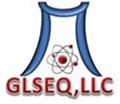 |
| Bronze |
 |
 |
 |
